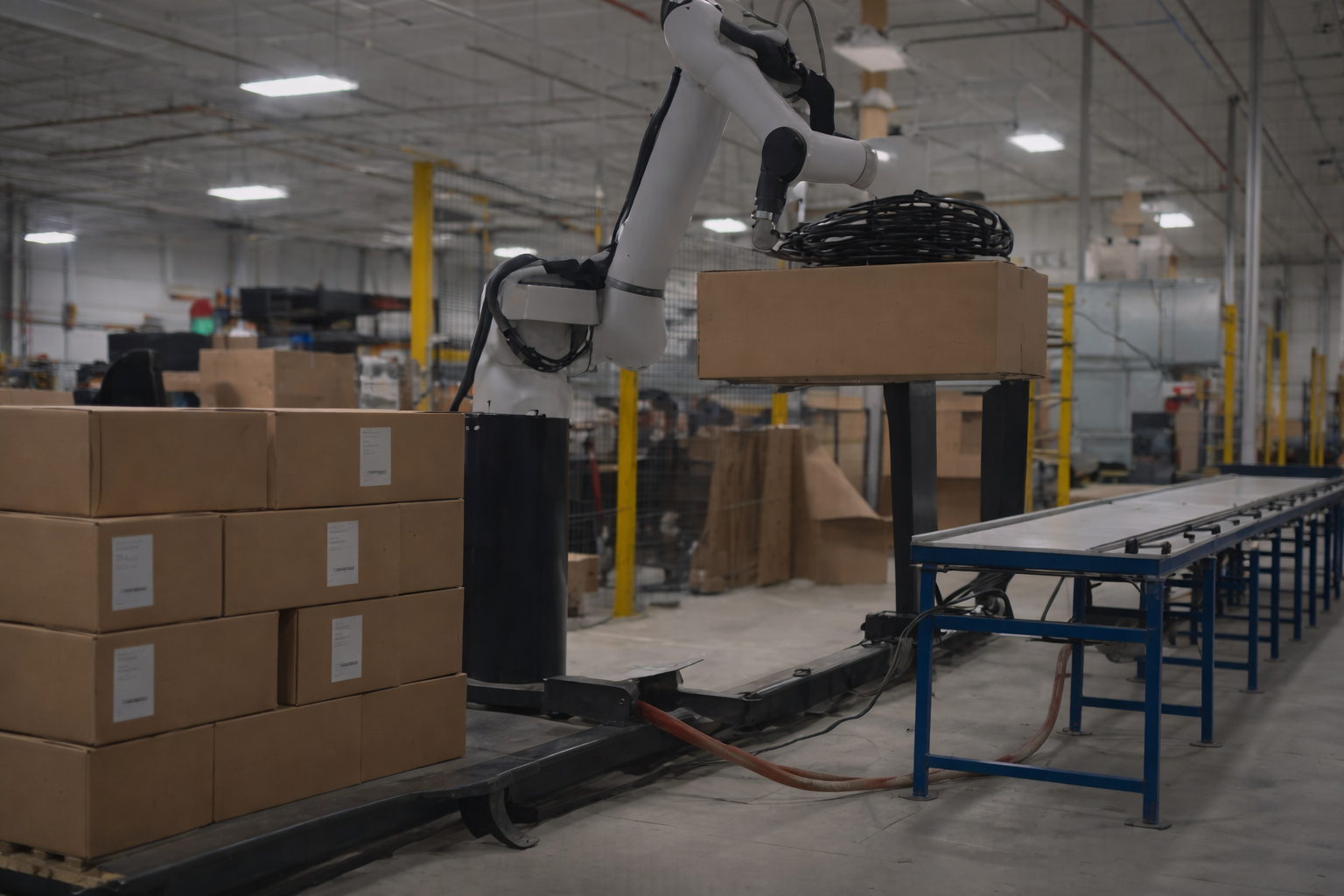AI Robotics and Pop Culture
Even Hollywood knows how glamorous the world of warehouse automation is!
In the new A24 film Babygirl, well-known actress Nicole Kidman stars as Romy, the CEO of an AI robotics company. The function of the automation company is not established in great detail throughout the course of the film. Despite this, one can gather from the imagery of small, agile robots gliding along tracks woven through tightly packed warehouses, that the company produces automated storage and retrieval systems (AS/RS).
AI Robotics and Leadership: Insights from Babygirl
Though AI robotics itself is not a central topic of the film, it is interesting to note that while being interviewed in a video for investors, Romy quotes Amit Ray. She recites, “As more and more artificial intelligence is entering into the world, more and more emotional intelligence must enter into leadership.”
Despite its otherwise limited acknowledgment of the world of AI, Babygirl took the time to reference this quote. This highlights just how important it is for leaders in AI to possess the soft skills required to guide the communities they represent through transformations of technology that might seem daunting.
Why AI and Automation Feel Daunting to Many Companies
The words of “artificial intelligence” and “automation” are often daunting to those who have no background in the world of computer science or robotics. Despite 96% of companies surveyed in The Future of Industrial AI in Manufacturing Report survey reporting that they plan to see increased investment in AI in their manufacturing operations by 2030, only 8% indicated that they have a high level of confidence in their companies’ internal expertise to manage and support AI.
Many small and mid-sized manufacturing companies do not have industrial engineers and, therefore, feel as though they are ill-prepared to automate. Operating out of buildings that are decades old, many may feel that automation is only possible for the “big guys.”
Making Automation Accessible to All
As the Amit Ray quote suggests, it is important for AI robotics companies to recognize and address these concerns. By working with companies that lack their own engineering teams, AI robotics providers can make automation accessible to businesses of all sizes.
The Importance of User-Friendly, Turn-Key Solutions
User-friendly, turn-key solutions are critical in this regard. These systems are designed to be ready-to-use upon delivery, with minimal setup and configuration required. This eliminates the need for in-house technical expertise, allowing companies to adopt automation without hiring additional staff or undergoing extensive training.
Robots as a Service: A Game-Changer for Small and Mid-Sized Businesses
Additionally, many AI robotics companies now offer Robots as a Service (RaaS), a flexible pricing model that has revolutionized the adoption of automation technology. RaaS allows businesses to pay for robotic services on a subscription basis, avoiding the substantial upfront capital investment typically associated with purchasing automation equipment outright.
Why RaaS Works for Smaller Companies
This model is especially advantageous for small and mid-sized contract manufacturing sites, which often operate on tight budgets and cannot afford large-scale investments. With RaaS, companies can scale their automation efforts gradually, paying only for the services they use. This flexibility is invaluable for businesses that experience fluctuating demand or are unsure about their long-term automation needs.
RaaS providers typically include maintenance, upgrades, and support as part of the subscription, ensuring that companies always have access to the latest technology without additional costs.
Advanced Vision Systems: Broadening Automation Possibilities
Advanced vision systems have further transformed the landscape of automation, particularly for equipment like palletizers. These systems enable robots to identify and handle a wide variety of SKUs, making them adaptable to diverse product lines. This adaptability means that companies no longer need to invest in custom robotic equipment tailored to specific tasks. Instead, they can leverage generalizable automation solutions that are not only more versatile but also significantly more cost-effective.
For small and mid-sized companies, this shift is a game-changer. Previously, the high capital required for custom equipment put automation out of reach. Now, with advanced vision systems, companies can implement flexible automation solutions that grow with their business needs, reducing both initial and long-term costs.
Embracing Automation: Benefits Outweigh the Risks
By offering accessible solutions and flexible pricing models, AI robotics companies can help demystify automation and empower businesses to embrace its benefits. Automation brings measurable improvements in efficiency, accuracy, and scalability. By automating repetitive and labor-intensive tasks, companies can free up their workforce to focus on higher-value activities, driving innovation and growth.
This collaborative approach ensures that even companies without extensive technical expertise can thrive in an increasingly automated world.



